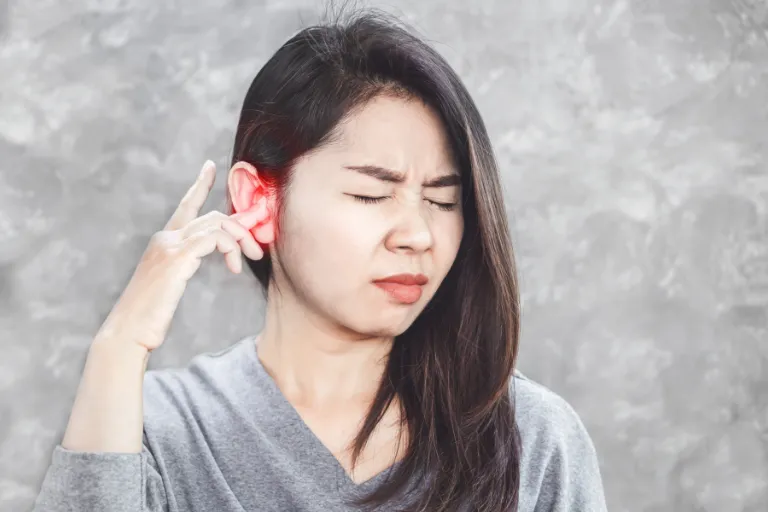Key Points
- Autoimmune activity can damage the inner ear, leading to ringing in the ear, dizziness, or fluctuating hearing loss.
- Conditions like lupus, joint pain–related autoimmune symptoms, and autoimmune inner ear disease (AIED) are among the most common culprits.
- Early diagnosis and immune-modulating therapies can help preserve hearing and reduce long-term complications.
- Emerging non-invasive neuromodulation solutions show promise for supporting immune balance and auditory recovery.
When the Immune System Turns on the Ear
For many people, hearing changes happen suddenly and without an obvious cause. A morning starts normally, then one ear feels muffled, or a constant ringing begins without warning. While infections or noise exposure often take the blame, science is increasingly uncovering another hidden factor: the immune system itself.
In autoimmune-related hearing loss, the body’s defense network mistakenly attacks structures in the inner ear—the delicate machinery that translates sound waves into electrical signals. The result can be inflammation, tissue swelling, and impaired hearing or balance. Researchers estimate that up to 15% of sudden sensorineural hearing loss cases may have an autoimmune origin [1]. Recognizing this link early can make a crucial difference, as many cases respond to timely therapy.
The Overlooked Connection Between Autoimmunity and Hearing
The human ear is one of the body’s most intricate sensory organs, and even mild inflammation can disrupt its finely tuned systems. Yet, autoimmune symptoms affecting hearing often go unnoticed or are misattributed to aging or stress. Left unchecked, immune-mediated damage can become permanent, leading to chronic ringing in the ear, dizziness, or progressive hearing decline.
Beyond physical symptoms, the emotional and cognitive toll is significant. Studies show that untreated hearing problems can amplify social withdrawal, cognitive fatigue, and even depressive states [2]. Understanding the immune connection isn’t just about ear health—it’s about protecting overall well-being.
Warning Signs Your Hearing Issue Might Be Immune-Related
Autoimmune-related hearing issues can appear subtly or progress rapidly. Common warning signs include:
- Fluctuating hearing loss that improves and worsens over days or weeks
- Sudden one-sided hearing decline
- Persistent ringing in the ear or fullness sensation
- Dizziness or imbalance, sometimes mistaken for vertigo
- Co-occurring joint pain, skin rashes, or fatigue
Conditions such as lupus, joint pain–related autoimmune disease, and thyroid autoimmunity are frequently linked to these patterns. In some cases, individuals develop autoimmune inner ear disease (AIED)—a rare but treatable disorder where the immune system directly targets inner ear structures [3].
Because symptoms often overlap with viral or age-related hearing loss, health professionals emphasize the importance of detailed medical history, blood testing, and audiological evaluation.
Inside the Inflammatory Storm: How the Immune System Disrupts Hearing
The inner ear is not immune-privileged—it contains antigen-presenting cells, blood vessels, and signaling molecules that can trigger inflammation when the immune system misfires. Research suggests that antibodies directed against inner ear proteins (such as HSP-70) may cause the body to attack its own cochlear tissues [4]. This can impair hair cells, alter fluid balance, and reduce auditory nerve transmission.
Inflammatory cytokines like tumor necrosi factor-alpha (TNF-α) and interleukin-6 (IL-6) play a central role in this process, promoting tissue swelling and vascular changes within the cochlea [5]. Over time, repeated immune activation can lead to fibrosis or nerve degeneration—explaining why some users experience fluctuating symptoms before permanent hearing loss develops.
Unraveling the Diagnosis: How Experts Identify Immune-Driven Hearing Loss
Diagnosing immune-mediated hearing loss can be complex. Health professionals often rely on:
- Audiometric testing, such as pure-tone audiograms, to assess hearing thresholds
- Otoacoustic emissions, measuring inner ear cell activity
- Blood tests for autoimmune markers (e.g., antinuclear antibodies, rheumatoid factor, or anti-HSP70 antibodies)
- Imaging, like MRI, to rule out structural abnormalities
Because autoimmune hearing loss often fluctuates, serial testing over time can reveal patterns consistent with immune dysfunction. A quick response to corticosteroids can also be a diagnostic clue [6].
From Steroids to Neuromodulation: The Expanding Field of Hearing Therapies
Corticosteroids remain the frontline solution, working by suppressing inflammation and stabilizing immune activity. When users respond well but relapse after tapering, immunosuppressive therapies such as methotrexate, azathioprine, or biologics may be introduced to maintain balance [7].
Recent studies also explore non-invasive neuromodulation therapies designed to influence the body’s inflammatory reflex via the vagus nerve. Early evidence suggests that CE-marked non-invasive vagal neuromodulation systems may help regulate immune signaling and improve blood flow to the inner ear by stimulating the body’s parasympathetic pathways [8]. While not a replacement for standard care, such wearable devices could represent an adjunctive, low-risk avenue for managing chronic inflammation.
Lifestyle strategies—like reducing systemic inflammation through balanced nutrition, hydration, and stress regulation—can further support immune and auditory health.
Looking Forward: What the Future Holds for Immune-Linked Hearing Research
Autoimmune-related hearing research is still evolving, but momentum is growing. Scientists are studying biomarkers that predict risk before symptoms arise and exploring gene-targeted and neuro-immune modulation therapies. The goal is early identification and precision management—preventing irreversible auditory damage before it starts.
As understanding deepens, the message becomes clear: hearing loss isn’t always an ear problem alone—it’s a whole-body signal. Recognizing the immune connection offers new hope for prevention and preservation.
Taking Action: What to Do if You Suspect Autoimmune-Related Hearing Loss
If you or someone you know experiences unexplained ringing in the ear, dizziness, or fluctuating hearing, it’s important to seek evaluation from a qualified health professional. Early testing and therapy can significantly improve outcomes.
For individuals already managing autoimmune symptoms, maintaining consistent immune monitoring and discussing hearing changes with your care provider can be crucial steps in long-term protection.
Conclusion: Rethinking Hearing Health Through the Lens of Immunity
Autoimmune-related hearing loss represents a convergence of two vital systems—the immune and the sensory. Understanding how immune imbalance affects auditory function not only opens doors for more effective solutions but also underscores the importance of holistic health management.
Emerging science points toward an era where hearing protection extends beyond earplugs and decibels—into the realm of immune awareness and neuromodulation-driven healing.
Medical Disclaimer
This article does not in any way constitute medical advice. Please seek consultation with a licensed health professional before starting any therapy. This website may receive commissions from the links or products mentioned in this article.
Subscribe for Free for more insightful health articles tailored to your needs.
Sources
- Broughton, S. S., Meyerhoff, W. L., & Cohen, S. B. (2004). Immune-mediated inner ear disease: 10-year experience. Audiology & Neurotology, 9(6), 372–380.
- Lin, F. R., et al. (2013). Hearing loss and cognitive decline in older adults. JAMA Internal Medicine, 173(4), 293–299.
- Moscicki, R. A., et al. (1994). Autoimmune sensorineural hearing loss: clinical and laboratory findings and response to therapy. Annals of Internal Medicine, 120(5), 368–373.
- Harris, J. P., & Sharp, P. A. (1990). Inner ear autoantibodies in patients with rapidly progressive sensorineural hearing loss. Laryngoscope, 100(5), 516–524.
- Merchant, S. N., et al. (2008). Pathophysiology of immune-mediated inner ear disease. Otology & Neurotology, 29(6), 760–769.
- Ruckenstein, M. J. (2004). Autoimmune inner ear disease. Current Opinion in Otolaryngology & Head and Neck Surgery, 12(5), 426–430.
- Zeitoun, H., et al. (2005). Corticosteroid response and prognosis in autoimmune inner ear disease. Archives of Otolaryngology–Head & Neck Surgery, 131(7), 620–625.
- Bonaz, B., & Pellissier, S. (2021). Vagus nerve stimulation: a new promising therapeutic tool in inflammatory bowel and other inflammatory diseases. Frontiers in Neuroscience, 15, 684993.



